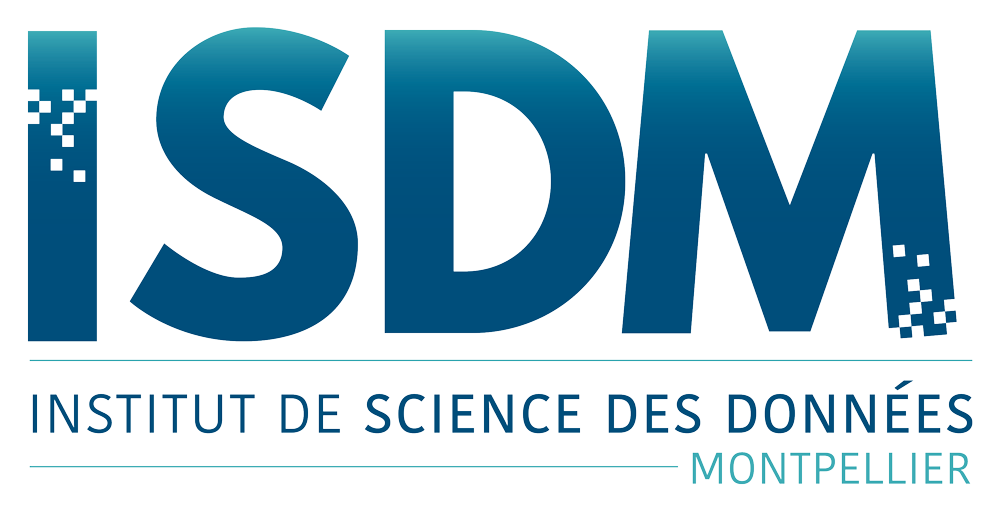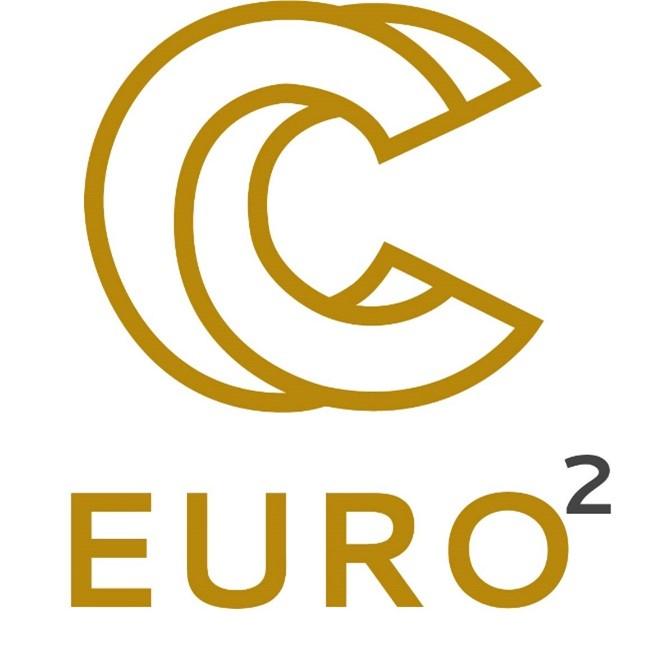Meet the 19 amazing speakers and tutorial facilitators that contribute to the program of this event.
Alizia Tarayoun is a research engineer at University Grenoble Alpes (France) since 2019. In 2018 she obtained a PhD degree in Geosciences from University Montpellier (France). She is now a member of the SEISCOPE consortium which is focused on the high resolution seismic imaging by full waveform inversion. Her research interests focus especially on high-performance computing, system architectures for Exascale computing and full waveform inversion. Her role is to manage the computation codes developed where she notably switched from the version control system Subversion to Git and the gricad-gitlab forge. She has used the later daily since then and has been training PhD students in its use for several years.
Andreas Enge is a researcher at Inria Bordeaux, working on computational number theory and its applications to cryptology. He is interested in combinations of algebraic and analytic methods, or symbolic-numerical computations guided by complexity theory. This led him to be one of the main authors of GNU MPC for arbitrary precision complex floating point arithmetic with correct rounding. Andreas programmes mainly in C, which he tweaks to look like Pascal.
Arun Isaac is a research fellow at the Department of Genetics, Evolution & Environment in University College London. He is an avid and experienced lisper/schemer. He loves writing domain specific languages and exploring new computing paradigms. He contributes regularly to the GNU Guix functional package manager, and helps run and maintain genenetwork.org.
Benoit Chauvet is the engineering manager of the Software Heritage technical team. He has an IT engineering and training/consulting background. His role is to coordinate the team planning and organize the Software Heritage annual roadmap. He is interested in free and Open Source software, and eager to get the best from the combination of the research environment and engineering best practices.
I'm a senior Unix system administrator, used to distributed systems just before the 2000s and specialized into High Performance Computing and Data Analysis infrastructures since 2006. I'm currently in charge of the HPC clusters and storage facilities of the GRICAD computing center in Grenoble.
Inria researcher in the concace team in Bordeaux. Seeking to combine high-level expression of numerical algorithms (especially numerical linear algebra) and high-performance on supercomputers. Trying to ensure a robust deployment of the resulting software stack with guix-hpc channel.
Franck Pérignon is a CNRS research engineer in scientific computing, at the Jean Kuntzmann Laboratory in Grenoble. Working for a long time with modeling and simulation tools, he has an extensive experience in software engineering. Moreover, since 2017, he is in charge of the GitLab platform for the research and teaching community in Grenoble.
Mathematics and computer science researcher by day, I've always loved tinkering with systems and found Guix to be both a wonderful tool and also project to work on! I'm interested in general in proof assistants, typed languages, correct-by-construction code and strong guarantees, but also synthetic mathematics and higher category theory.
Biophysicist at CNRS. Scientific computing since 1988, irreproducibility victim since 1995, tendency: ever increasing. Hoping that we will reach peak irreproducibility soon. Counting on Guix.
Educated as a computer scientist, employed as an engineer, but in reality I am just an artist, easily amazed by every aspect of software and computers. In my three and a half years at Leibniz Institute for Psychology I built a platform based on GNU Guix, which sought to improve access to reproducible research for scientists and students without formal computer science education. Recently I returned to embedded software development.
Research software engineer at Inria in Bordeaux, France, I have been working with kind yet demanding HPC practitioners who want it all—performance! flexibility! reproducibility! I founded Guix in 2012, soon joined by a team of intrepid developers, and Guix has proved to be a great tool to try and satisfy those HPC needs. I am member of the Software chapter of the French Comité pour la science ouverte (Open Science Committee).
Marek is a post-doc research fellow in computer science at Inria (French National Institute for Research in Computer science and Automation). Everyday user and occasional contributor to GNU Guix since the beginning of his PhD, he has dedicated a substantial part of his thesis to the reproducibility in computer science and especially in the domain of HPC. Whereas the main subject of his thesis was the design of fast solvers for coupled sparse and dense linear systems arising from aeroacoustic numerical modelizations, his current research interest resides in automatic parallelization of C/C++ source code through task insertion.
Miguel Colom is a senior researcher (PhD, HDR) at Centre Borelli, ENS Paris-Saclay. He works on open science, image processing, computer vision, and general AI. He's one of the founding editor of the Image Processing On Line (IPOL) journal and he designed the current demo system along with a team of motivated engineers. He's a member of the Task Force on Infrastructures for Quality Research Software of EOSC, of the IPOL Editorial Board, and the Board Team of TC18 IAPR Discrete Geometry and Mathematical Morphology on reproducibility matters. He teaches two courses at the “reproducibility track” of the M2 MVA master at ENS PS.
Nicolas Vallet obtained a MD in clinical Hematology at the university of Tours, France in 2019. He next joined Institut de recherche Saint Louis in Paris for a PhD, from 2019 to 2022, where he studied mechanisms of relapse after allogeneic hematopoietic stem cell transplant. His worked relied on mass cytometry and single cell RNAseq experiments. He is now assistant professor at the university hospital of Tours in the hematology and cell therapy department.
Trained as an applied mathematician, I'm now working at GRICAD, trying to provide Grenoble's research communities with the most relevant infrastructures and services possible to meet the needs of scientific computing and research data management, with a strong focus on reproducibility.
Ricardo is a free software hacker and GNU/Linux system administrator. Working at the Scientific Bioinformatics Platform at the Max Delbrueck Center for Molecular Medicine in Berlin he packages and manages scientific software on high performance computing systems and supports the development of bioinformatics tools and platforms. As a long term contributor and former co-maintainer of GNU Guix he has extensive experience in building software reproducibly and making stubborn applications work.
Sarah Gibson is an Open Source Infrastructure Engineer at 2i2c, an open source contributor, and advocate for open science. She holds more than two years of experience as a Research Engineer at a national institute for data science and artificial intelligence, as well as holding a core contributor role in the open source projects JupyterHub, Binder, and The Turing Way. Sarah is passionate about working with domain experts to leverage cloud computing in order to accelerate cutting-edge, data-intensive research and disseminating the results in an open, reproducible and reusable manner. Sarah holds a Fellowship with the Software Sustainability Institute and advocates for best software practices in research. She is a member of the mybinder.org operating team and maintains infrastructure supporting a global community in sharing reproducible computational environments. She has also mentored projects through cohorts of the OLS and Outreachy programmes, imparting lived experience of her skills participating and leading in open science projects.
I am Research Engineer at the Université Paris Cité; member of the core facilities team Inserm US53, CNRS 2030; team which supports biologists from generating data as genomic, flow cytometry or microscopy imaging to helping them with numerical processing. Unable, from laptop to HPC cluster, to deal with the whole complexity of all the software involved in bioinformatics using classical package managers – especially when trying to reproduce the computational environment between computers or over the time – so I have been interested in Guix. Now, I am daily working with it!
Yann Dupont is currently working on the architectural, system and network aspects of GliCID, the HPC center for education and research in the Pays de Loire region of France. Before entering the HPC world in 2016, he was in charge of the infrastructure department at the University of Nantes, where he was involved in Linux, networking, storage and even programming.




